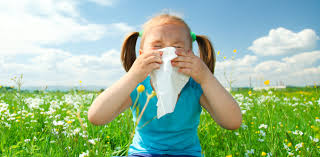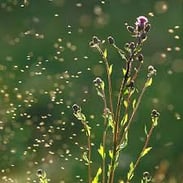 Take a deep breath. Spring is in the air. That is, unless you have spring hay fever. This is the time of year when trees and plants release pollen into the air. This may cause some of us to struggle with hay fever. The symptoms of hay fever include clogged sinuses, runny noses, the itchy eyes, and sneezing. Not exactly the symptoms we want in our life as the weather starts to get better and the flowers are in bloom.
Take a deep breath. Spring is in the air. That is, unless you have spring hay fever. This is the time of year when trees and plants release pollen into the air. This may cause some of us to struggle with hay fever. The symptoms of hay fever include clogged sinuses, runny noses, the itchy eyes, and sneezing. Not exactly the symptoms we want in our life as the weather starts to get better and the flowers are in bloom.
US Family Health Plan is all about you staying healthy and happy, and that means, enjoying your spring. Spring can be an awesome time of year, so don’t let hay fever cancel out your ability to enjoy the bounty of nature. Over 35 million Americans are sensitive to pollen. US Family Health Plan – a TRICARE Prime health program – wants you to get spring fever, not hay fever, so here are some facts you need to know to effectively shut hay fever down.
What is hay fever?
Hay fever is an allergic reaction to tree or plant pollen in the air. Pollen is a natural part of the re-productive life cycle of all plants. Pollen comes in different forms, and certain forms are prevalent at different times of the year. Tree pollen starts in the spring, grass pollen concentrated in late spring, and  weed pollen is worst at the beginning of summer. Hay fever allergies can differ by person, so if you do have hay fever, it’s good to know exactly what type of pollen may trigger it.
weed pollen is worst at the beginning of summer. Hay fever allergies can differ by person, so if you do have hay fever, it’s good to know exactly what type of pollen may trigger it.
What is the relationship between hay fever, asthma and the pollen count?
On days when there is a high pollen count, asthmatics may experience a worsening of their symptoms if they also suffer with hay fever. If you know you suffer from asthma, and are experiencing shortness of breath, a tight chest, wheezing or regular coughing, that may be triggered by high pollen, you may need to visit your physician to adjust your medication.
 No one can pollen completely, but hay fever symptoms are worse on days when the pollen count is high. If you know you suffer from asthma, it is a good idea to check the morning weather report to find out if the pollen count is high. If so, speak to your physician and take the necessary steps to avoid hay fever symptoms.
No one can pollen completely, but hay fever symptoms are worse on days when the pollen count is high. If you know you suffer from asthma, it is a good idea to check the morning weather report to find out if the pollen count is high. If so, speak to your physician and take the necessary steps to avoid hay fever symptoms.
Unfortunately, there is no known cure for hay fever. Interestingly though, it can disappear as you get older. Or, conversely, some people who have never had hay fever, can sometimes develop it later in life. Your doctor can recommend the best course of action to treat hay fever symptoms. These treatments can range from over the counter medications on up to a short dose of steroid tablets to curtail more severe symptoms.
When do you know you need to see a doctor about hay fever?If you start to experience more severe symptoms, or have a bout of asthma or sinusitis, reach out to your physician immediately.
How can you avoid pollen?Pollen is found in the air, so it is virtually impossible to avoid it. However, there are some steps you can take to reduce your exposure to pollen.
- Know the pollen count for the day, and make your plans accordingly. If you know you are sensitive to pollen and the pollen count is high, it may be best to stay indoors.
- Relax at the beach and not in the woods if you know you are sensitive to pollen.
- If the pollen count is high, avoid gardening, picnics or camping. Plan these activities when the pollen count is low and you can enjoy them.
- Shower and wash your hair after you come indoors.
- Carry tissue with you to clear pollen out of your nose or eyes.
- Wear sunglasses whenever you can to keep pollen out of your eyes.
Hopefully, with this information, even if you suffer from hay fever, you can make the most out of spring.

